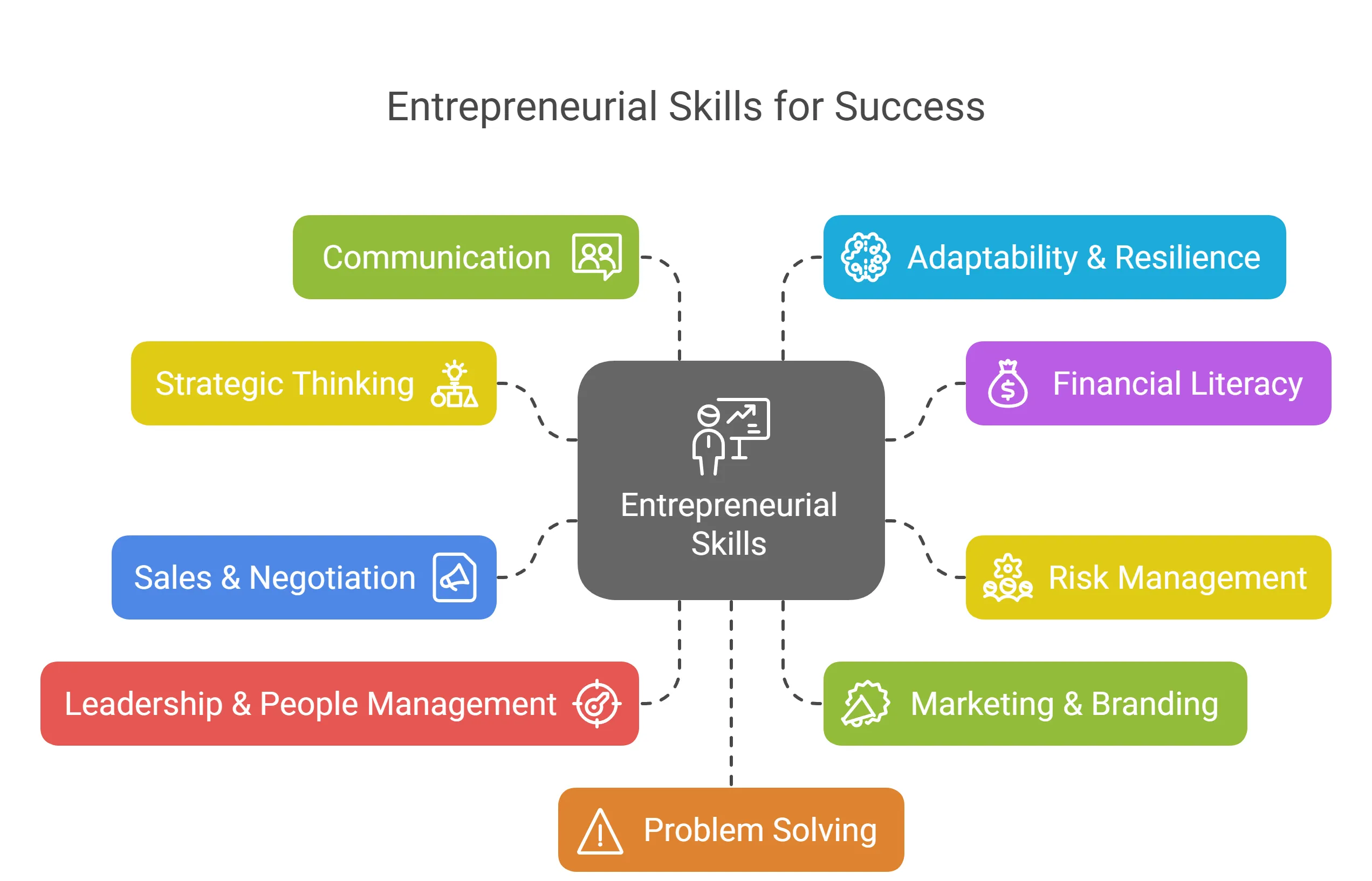Street Smarts to Startups: Africa’s Informal Hustlers Are Evolving Into Entrepreneurs

Across Africa, a transformative wave is taking place in the business landscape. Informal hustlers those who once relied on street markets, roadside stalls, or casual trading are evolving into structured entrepreneurs, leveraging creativity, digital tools, and innovation to build sustainable businesses. From Lagos’ bustling markets to Nairobi’s tech corridors, Accra’s artisan hubs to Addis Ababa’s small-scale manufacturers, Africa’s informal economy is graduating into formal business sectors, reshaping perceptions of entrepreneurship.

Historically, informal hustling was about survival and quick cash. Vendors, tailors, mechanics, and small-scale traders often operated with minimal resources, relying on street smarts, social networks, and sheer ingenuity. Today, these skills are being formalized through business education, digital platforms, and access to finance, creating a new generation of entrepreneurs who blend street-level intelligence with strategic planning.
From Survival Skills to Business Innovation
The journey from informal hustling to structured entrepreneurship involves more than scaling operations; it requires mindset shifts. Informal hustlers are learning to leverage their deep understanding of local markets, customer behavior, and supply chain improvisation into formal business strategies.
For example, a street food vendor in Accra who once relied on foot traffic and word-of-mouth marketing may now use e-commerce platforms and delivery apps like Jumia Food to reach wider audiences. Similarly, artisans in Nairobi are selling handcrafted goods through Etsy and Instagram Shops while learning bookkeeping, branding, and digital marketing. The street-level intuition, knowing what customers want and how to adapt quickly remains invaluable, but it is now paired with systems, technology, and scalability.

Digital Platforms as Catalysts
Digital technology has been a game-changer for informal entrepreneurs. Mobile payment solutions like Flutterwave and Paystack enable secure, fast transactions without relying on traditional banks. Social media platforms serve as both marketing tools and marketplaces, allowing hustlers to brand themselves and engage directly with customers.
The digital shift has democratized access to business resources, enabling informal entrepreneurs to compete on a global stage. A tailor in Lagos can now reach clients in London or New York through social media, while a craftswoman in Accra can sell bespoke jewellery internationally via Etsy or Shopify (Shopify Africa). The transition from informal to formal business is increasingly fuelled by technology.
Financing the Evolution
Access to finance is one of the biggest hurdles in transforming informal hustles into formal businesses. Traditional banks often view street-level entrepreneurs as high-risk. However, microfinance institutions, fintech lenders, and crowdfunding platforms are providing new avenues.
Platforms like Kiva and Flutterwave Capital allow informal hustlers to secure small loans or seed funding, enabling investment in inventory, technology, and staff. This financial support allows entrepreneurs to move from survival mode to growth mode, building sustainable enterprises that contribute to job creation and economic development.
Cultural Shifts and Entrepreneurial Mindset
The cultural perception of hustling is changing. Where once informal trading was seen as temporary or low-status work, society increasingly recognizes it as a legitimate path to entrepreneurship. Media stories, mentorship programs, and successful business case studies have elevated informal hustlers as symbols of resilience and innovation.
Initiatives like Tony Elumelu Foundation Entrepreneurship Program and She Leads Africa provide training, mentorship, and funding for African entrepreneurs, bridging the gap between street smarts and corporate business acumen.
Beyond individual ambition, Africa’s shift from hustle to enterprise reflects a deeper cultural and generational transformation. The younger generation is redefining what success means no longer waiting for government jobs or foreign investment, but building homegrown solutions to everyday challenges. From sustainable fashion brands in Ghana to mobile logistics startups in Kenya, these entrepreneurs are turning community pain points into profitable innovations. Their ventures are not only earning income but also restoring dignity to informal work, proving that creativity and grit are just as valuable as capital or credentials.
Moreover, this movement is changing global perceptions of African entrepreneurship. Investors and international partners are beginning to recognize that the continent’s most promising innovators are not only in high-tech accelerators but also in local markets and informal settlements. The resourcefulness born on the streets is now a model for sustainable growth, one that values resilience, social connection, and adaptability over rigid corporate structures. As Africa’s hustlers continue to evolve into entrepreneurs, the world is witnessing a new kind of capitalism: one powered by community, culture, and courage.
Challenges in Formalization
Despite progress, transitioning from informal hustling to structured business comes with challenges:
Regulatory Barriers: Licensing, taxation, and compliance can be complex for new entrepreneurs. Resources like SMEDAN Nigeria provide guidance and support.
Access to Capital: While fintech solutions help, scaling a business still requires sustained investment.
Skill Gaps: Informal entrepreneurs often need training in areas like accounting, marketing, and operations to compete formally.
Yet, those who navigate these challenges gain competitive advantage, as their combined street experience and formal business knowledge make them highly adaptable and innovative.
Success Stories Across Africa
Several success stories illustrate this transition:
In Lagos, Femi Otedola’s small-scale electronics reseller network evolved into a thriving import business supplying major tech stores.
In Nairobi, Maziwa Hub, initially a street dairy vendor collective, has grown into a regional supplier for supermarkets and hotels, using mobile payments and logistics apps.
In Accra, young artisans have turned small craft stalls into e-commerce brands, selling jewellery and fashion items internationally.
These examples demonstrate how entrepreneurial instincts, combined with education, technology, and capital access, can transform informal hustling into structured, profitable ventures.
The Future of Africa’s Informal Economy
The informal economy remains vital, employing millions across Africa. Its evolution into formal entrepreneurship signifies economic growth, job creation, and wealth distribution. Governments and private sector players are increasingly recognizing the value of informal-to-formal transitions, supporting training programs, digital infrastructure, and access to capital.
As street-smart hustlers embrace structured business strategies, Africa is witnessing a grassroots entrepreneurial revolution, one where resilience, ingenuity, and local insight are shaping the continent’s next wave of innovative businesses.
Conclusion
Africa’s informal hustlers are proving that street smarts are not just survival tools, they are entrepreneurial assets. From street stalls to startups, the combination of creativity, adaptability, and digital empowerment is redefining what it means to succeed.
This evolution is transforming not just individual livelihoods but entire economies, showing that the path from informal hustle to formal entrepreneurship is not only possible, it is a driving force for Africa’s future prosperity.
Recommended Articles
Digital Nomads in Africa: The Rise of Remote Workers Moving In, Not Out

Across Africa, foreign remote workers are trading in Europe’s cities and Asia’s beaches for new creative hubs in Kigali,...
CoinDCX's Crypto Journey: Sumit Gupta Unveils How Trust Built India's Exchange

CoinDCX CEO Sumit Gupta recounts how the crypto exchange handled a $44 million security breach with transparency and swi...
The Hidden Workforce Behind Your Apps

Invisible hands power the digital world: African data labelers, content moderators, and gig workers keep AI and apps run...
Meet the Theremin: The Weirdest Instrument You’ve Never Heard Of

From sci-fi movies to African studios? Meet the theremin—a touchless, ghostly instrument that’s making its way into Afri...
You may also like...
Digital Portfolios Are the New Business Cards; Here’s How to Build One That Gets Seen

In today’s digital-first economy, your online portfolio is your handshake, résumé, and elevator pitch rolled into one. H...
Career Pivoting: Why Changing Paths Might Be the Smartest Move You Make

In a world where stability often overshadows fulfillment, career pivoting may be the smartest move for professionals se...
Why Your First Failure Might Be the Best Thing That Ever Happened to Your Business

Failure isn’t the end of entrepreneurship, it’s the education success never gives. Here’s why your first business collap...
Consumerism vs Culture: Is Africa Trading Values for Trendy Lifestyles?

Is Africa trading its cultural values for trendy lifestyles? Explore how consumerism, foreign brands, and social media p...
The War on Boys: Are African Male Being Left Behind in Gender Conversations

Why are African boys and men often left out of gender empowerment programs? Explore how emotional suppression, lack of m...
Pay Slip, Motivation Slips: The Silent Crisis Among the Working Class

Across Nigeria, millions of workers are trapped in jobs that pay just enough to survive but too little to live. Beneath ...
Premier League's Unsung Heroes: Bournemouth, Sunderland, and Tottenham Shockingly Exceed Expectations

This Premier League season sees teams like Bournemouth, Sunderland, and Tottenham exceeding expectations. Under Thomas F...
El Clasico Fury: Yamal Controversy and Refereeing Blunders Ignite Post-Match Debates
)
Real Madrid secured a 2-1 El Clasico victory over Barcelona amidst significant controversy surrounding a late penalty de...